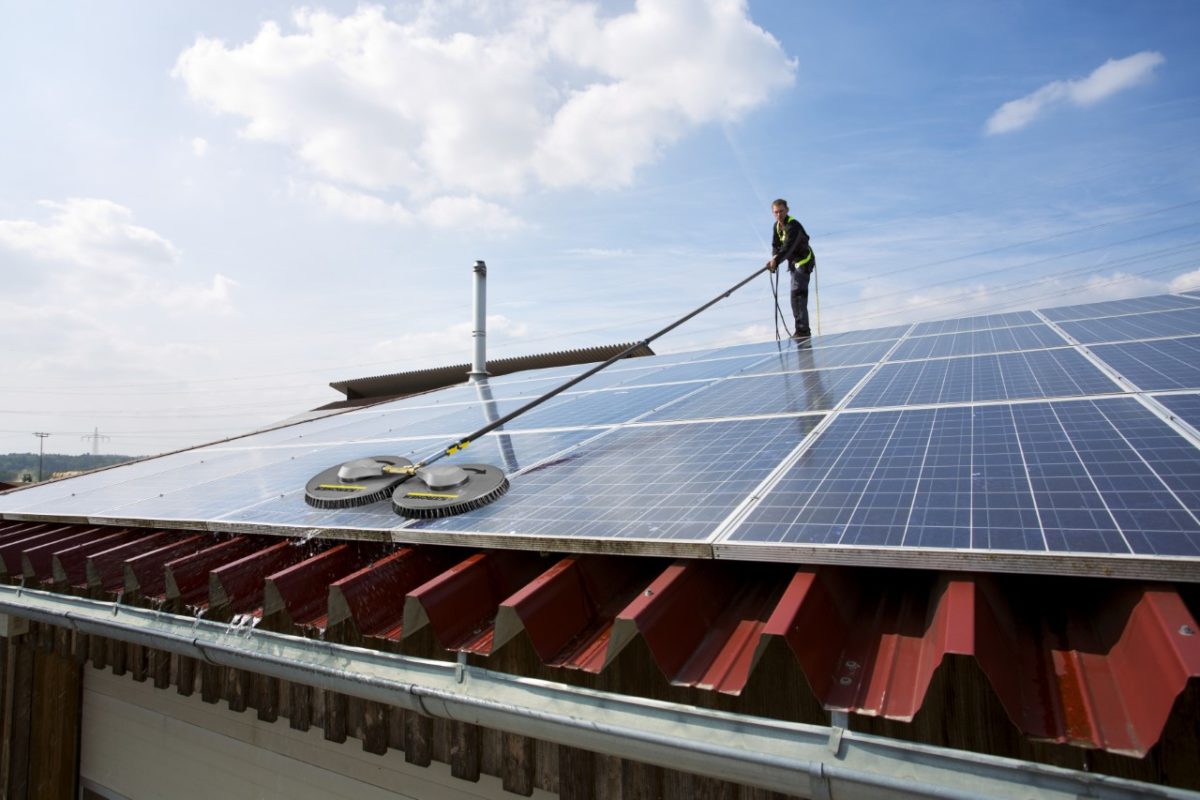Kärcher, a cleaning solutions specialist, is looking to strengthen its presence in the Indian solar sector. The company offers complete solar panel cleaning solutions for commercial and residential PV installations.
The solutions are designed and engineered in Germany.
“The efficiency of a solar panel decreases up to 50% due to dust accumulation. So, panels in high-dust zones should at least be cleaned once a week. However, the use of cleaning equipment is yet to pick up pace in India due to the easy availability of labor,” said Jatinder Kaul, managing director at Kärcher India.
“There is also a need to create awareness about PV cleaning efficiency achieved with the equipment and the resulting impact on power generation,” he added.
The company has introduced its iSolar 400 and iSolar 800 solar cleaning kits that can be used with the Kärcher high-pressure cleaners with a water flow rate of 700 – 1000 l/h and 1000 – 1300 l/h, respectively. The kits include water-driven brush heads, telescopic lance, etc. The quick-releasing fasteners make retracting and deploying the telescopic lances easy.
The iSolar 400 has a single water-driven disc brush with a working width of 400 mm. The iSolar 800 has two brushes working in opposite directions to clean the modules. The contra-rotating brushes in iSolar 800 balance out any transverse forces, ensuring optimal handling.
Kärcher also offers safety gear for the rooftop solar cleaning personnel and panel cleaning detergent RM99, which it claims, can gently remove even the most stubborn dirt.
Kärcher was incepted in 1935 in Winnenden, Germany.
This content is protected by copyright and may not be reused. If you want to cooperate with us and would like to reuse some of our content, please contact: editors@pv-magazine.com.









How to Purchase for this Machine, Please Send me details on my Email ID
Solar cleaning brush water driving